- Home
- James Rollins
Tracker Page 4
Tracker Read online
Page 4
He is not alone.
Csorba called out in Hungarian, holding out his GPS.
He had stopped near a flat-topped crypt raised a foot above the ground. Its surface was mostly obscured under a thick mat of leaf detritus and mulch, as if the earth were trying to swallow the tomb up.
Tucker was handed a hammer and a crowbar. He considered how best to use them to his advantage, but now the professor had a pistol in hand, pointed his way, plainly not planning on getting his own hands dirty. Plus the man still had the wireless transmitter in his pocket. Tucker remembered the frightened look on Aliza’s face, the grief shining from her father’s.
He could not fail them.
With no choice but to cooperate, Tucker worked with the others. Using hammers, they managed to loosen the lid. Once done, they all jammed crowbars into one side and cranked together on the slab of thick marble, as if trying to pry open a stubborn manhole cover. It seemed an impossible task—then, with a grating pop of stone, the lid suddenly lifted. An exhalation of sulfurous air escaped, like the brimstone breath of the devil.
One of the trio made a sign of the cross on his forehead, in some superstitious warding against evil.
The others made fun of this action, but only half-heartedly.
Afterward, with some effort, they pushed and shoved and worked the lid off the base of the crypt.
Csorba came forward with his flashlight and pointed the beam down. He swore happily in Hungarian. Cheers rose from the others.
Stone stairs led from the lip of the tomb and vanished into darkness below.
They’d found the right tomb.
Orders were quickly made.
Tucker was forced to sit on the edge of another crypt, guarded at gunpoint by two of the men. Domonkos and Csorba, both with flashlights in hand, climbed down together to see what lay below, vanishing away, leaving only the glow of their lights shining eerily out of the open tomb.
With nothing to lose, Tucker sat with his arms behind his back, feigning full cooperation. As if mumbling to himself or praying, he subvocalized into the throat mike. “Kane. Keep hidden. Bring gun.”
He held his palms open behind him and waited.
He breathed deeply to keep himself calm. He let his eyes drift closed.
C’mon, Kane . . .
One of the men yelped. He saw the man twirl pointing his pistol toward the woods. A low growl flowed from the forest, a shadow shifted to the left, twigs cracked. Other throats rumbled in the darkness, noise rising from all sides. More shadows shifted.
The two men spoke rapidly in Hungarian, their eyes huge.
It was the cemetery’s pack of wild dogs.
Then Tucker felt something cold and wet touch the fingers behind his back. He jumped, startled. He hadn’t heard a thing. He reached back there and found fur. Then something heavy was dropped into his palms.
The pistol.
“Good boy,” he whispered under his breath. “Stay.”
It seemed Kane had won over some friends.
Tucker gently placed the pistol on the tomb behind him. Using the ongoing distraction, he reached blindly back to Kane to investigate the audio glitch. He didn’t want to be cut off from his partner any longer.
Especially not now.
He needed this link more than ever.
He toggled the camera off, then on again, rebooting it, praying that was enough.
A moment later, a satisfying squelch of static in his left ear meant all was right with the world.
“All done, Kane. Go back and hide with your friends.”
All he heard as Kane retreated was the softest scrape of nail on marble. Within another minute, the forest went quiet again, the pack vanishing into the night.
The two guards shook off their fear, laughing brusquely now that the threat seemed to have backed off, sure they had intimidated the pack away.
As Tucker listened to the soft pant of Kane in his ear, he slipped the pistol into his belt and hid it under the fall of his jacket.
And not a moment too soon.
A shout rose from the open crypt. The light grew brighter. Then Domonkos’s pocked face appeared and barked new orders, smiling broadly. Tucker could almost see the sheen of gold in his eyes.
Had they actually found the stolen treasure?
Tucker was forced to his feet and made to follow Domonkos down into the crypt. He guessed they needed as many able-bodied men as possible to haul up the treasure from below. Tucker mounted the steps, trailed by the other two men.
The narrow stairs descended from walls made of brick to a tunnel chiseled out of natural stone. He lost count at a hundred steps. Conversation had died down as they descended, stifled by the weight of stone above and the dreams of riches below. Soon all Tucker heard was the men breathing around him, their echoing footfalls, and somewhere far below the drip of water.
Good.
At last, the end of the staircase appeared, lit by the glow from Csorba’s flashlight.
Reaching the cavern, Domonkos entered ahead of them, sweeping his arm to encompass the space as if welcoming them to his home. He found his voice again and chattered happily to his comrades.
Tucker took a few steps into the space, awed by the natural vault, dripping with water, feathered with thick capes of flowstone and spiked above by stalactites. Tucker wondered how many Jewish slaves Oberführer Erhard Bock had worked to death to tunnel into this secret cavern, how many others had died to keep its secret—and as he stared over at Csorba, he wondered how this Jewish scholar could so blithely discount his own heritage and prepare to steal gold soaked in his ancestors’ own blood.
Csorba stood next to a stack of crates, each a cubic foot in size and emblazoned with a swastika burned into the wood. He had broken one open, pulled down from the top of the pile. Hundreds of gold ingots, each the size of a stick of butter, spilled across the floor.
Csorba turned, wide-eyed.
He spoke to the others, who all cheered.
He even shared the news with Tucker.
“Erhard Bock lied,” he said, awe filling his voice. “There are not thirty-six crates here. There are over eighty!”
Tucker calculated in his head. That equaled over $200 million.
Not a bad haul if you don’t mind murdering some innocent cemetery caretakers, a kindly university professor, his daughter—not to mention yours truly. And who knows how many more?
He’d heard and seen enough.
He slipped out his pistol, raised it, and shot three times.
Three head shots.
Three bodies fell. The last was Domonkos, who sank with the most bewildered expression on his face.
He couldn’t bring all four back to the surface by himself.
Too risky.
But he could bring one, the man behind all of this.
Csorba stumbled into the crate and yanked his wireless detonator out of his pocket. “Another step and I’ll press it.”
To see if he’d actually do it, Tucker took that step and another. He saw the man’s thumb tremble on the button.
Then, with a wince, Csorba finally pressed it. “I . . . I warned you.”
“I didn’t hear any explosion,” Tucker said. “Did you?”
Csorba pressed it several more times.
Tucker closed the distance, plucked the useless detonator out of his grip, turned it off, and pocketed it. He waved his pistol toward the steps.
“I don’t understand . . .” the professor mumbled as he obeyed.
Tucker didn’t bother to explain. Once he got hold of the pistol from Kane, he could have shot Domonkos and his two cronies up top, but he feared that if Csorba heard gunfire he might panic and do what he just did—press the transmitter.
So Tucker had to come down here to be certain.
A quarter of the way along the steps, he had lost his wireless connection to Kane. That panting in his ear had died away again. So he was confident Csorba’s transmitter, buried four times deeper, would be equally useless—
only after knowing that for sure by coming down here did he feel it safe enough to act.
They finally reached the top of the crypt.
Csorba tried to bolt for the forest.
“Kane, stop him.”
Folding out of the woods, a shadow blocked the professor’s path, growling, eyes shining in the dark. Others materialized, closing in from all sides, filling the night with a low rumble, like thunder beyond the horizon.
Csorba backpedaled in fright, tripped over a stone, and fell headlong into one of the open graves. A loud thud followed, accompanied by a worrisome snap.
Tucker hurried forward and stared into the hole. The professor lay six feet down, his neck twisted askew, unmoving. Tucker shook his head. It seemed the ghosts of this place weren’t going to let this man escape so easily.
Around him, the dark shadows faded back into the forest, vanishing upon some unspoken signal, until only the whisper of leaves in the wind remained.
Kane came slinking up, fearful he had done wrong.
Tucker knelt and brought his friend’s face close to his. “Who’s a good boy?”
Kane reached and touched a cold nose against his.
“That’s right. You are.”
Half an hour later, Tucker sat in the sedan with the broken headlamp, the engine idling. He had freed Aliza and her father and told them all that had happened. He was going to leave it to them to explain as best they could to the authorities, leaving his name out.
Aliza leaned her face through the open window.
“Thank you.” She kissed him lightly on the cheek. “Are you sure you don’t want to stay? If only for another night.”
He heard the offer behind her words, but he knew how complicated things would become if he did stay. He had two hundred million reasons why it was time for him to go.
“What about a reward?” she asked.
He pictured Csorba falling into his own grave, snapping his neck.
“There’s too much blood on that gold,” he said. “But if there’s any spare change, I know of some hungry dogs that share this forest. They could use food, a warm place to lay their head at night, a family to love them.”
“I’ll make it happen,” she promised. “But aren’t those things what we all want?”
Tucker looked at the stretch of open road beyond the brick archway.
Maybe some day, but not today.
“Good-bye, Aliza.”
He revved the engine.
Kane’s tail thumped heavily on the seat next to him, his head stuck full out the window. As Tucker gunned the engine, a howl burst from his partner, an earsplitting call, singing to his own blood.
The sedan shot forward and barreled out the archway.
Behind them, the forest erupted with a chorus of yowls and wails, echoing up into the night and chasing them out into the world.
As they raced away, the wind blew brochures around the car’s interior. It seemed the prior owner had been dreaming of faraway trips, too, ways to spend that gold.
One landed against the windshield and became plastered there crookedly.
The photo depicted palm trees and sandy white beaches.
Its exotic name conjured up another time, a land of mystery and mythology.
Zanzibar.
Tucker grinned, and Kane wagged his tail.
Yeah, that’ll do.
So ends this adventure with Tucker and Kane—but a larger one looms ahead for the pair as they reach Zanzibar in a novel titled Bloodline. A fateful crossing with Commander Pierce of Sigma Force will cast them into an adventure spanning the globe, one that will reveal a frightening scientific truth about the nature of mankind: That immortals are walking among us today.
Continue reading for a sneak peek at
BLOODLINE
On sale June 26, 2012
Horn of Africa Map
Notes from the Historical Record
Throughout history, conspiracy theories abound. It is only human nature. We are forever looking for patterns amid chaos, for signs of the invisible puppeteer manipulating the grand scheme of lives, governments, and the path of mankind. Some of these shadowy plotters are cast as villains; others as great benefactors. Some of these secret cabals are based on historical facts; others are mere fanciful fictions; and yet even more are a Gordian knot of the two, woven so inexplicably together that the line between fact and fiction becomes a tangled tapestry of false history.
And for no other organization in history has this stood truer than the infamous Knights Templar.
In the early twelfth century, the order began as a group of nine knights, who swore to protect pilgrims on their way to and from the Holy Lands. From those humble beginnings, a great order would eventually grow in both wealth and power and spread across Europe until even popes and kings feared them. Then, on October 13, 1307, the king of France and the current pope conspired to arrest and disband the order, claiming great atrocities had been committed by the knights, including heresy. In the aftermath of that purge, legends and myths blurred the true fate of the order: stories of lost treasures abounded; tales spread of knights escaping persecution to arrive on the shores of the New World; and some reports even claim that the order still exists today, in secret and under guard, protecting a power that could reshape the world.
But let’s set aside such speculations and mythologies and go back to those original nine knights. What many do not know is that those nine founding members were all related by blood or marriage, arising from a single family. Eight of them are recorded by name in historical documents. The ninth remains a mystery and a source of much speculation today by historians. Who was this mysterious founding member of an order that would grow in such prominence in history and legend? Why was this last knight never named as plainly as the others?
The answer to that mystery is the beginning of a great adventure.
Notes from the Scientific Record
On February 21, 2011, the cover of Time magazine declared: 2045, The Year Man Becomes Immortal. At face value, that might seem a wild claim, but other scientists have made similar statements. Dr. Ronald Klatz, in his book Advances in Anti-Age Medicine, wrote:
Within the next fifty years or so, assuming an individual can avoid becoming the victim of major trauma or homicide, it is entirely possible that he or she will be able to live virtually forever.
We are living in an exciting time when advances in medicine, genetics, technology, and a myriad of other disciplines are opening the newest frontier for mankind: eternity.
How will that manifest, what form will it take? Within these pages, you’ll discover that answer. The concepts raised in this novel are based on facts, on exhaustive research, going back to studies done by Soviet scientists during the Cold War. But before you turn to that first page, I must make one correction concerning the startling statements made above. They are, in fact, far too conservative in their estimates.
For not only is immortality within our reach—it is already here.
Summer 1134
Summer 1134
Holy Lands
They once called her a witch and a whore.
But no longer.
She sat astride a gray destrier as the black-armored warhorse stepped gingerly through the carnage of battle. Bodies littered the fields ahead, Muslim and Christian alike. Her passage stirred the feasting crows and ravens, chasing them up into great black clouds in her wake. Other scavengers—those on two legs—picked through the dead, pulling off boots, yanking out arrows for their points and feathers. A few faces lifted to stare, then quickly turned away again.
She knew what they saw, another knight among the many who fought here. Her breasts were hidden under a padded habergeon and a hauberk of mail. Her dark hair, cropped to her shoulders, shorter than most men’s, lay under a conical helmet; her fine features further obscured by a nasal bar. Strapped to the side of her saddle, a double-edged broadsword bumped against her left knee, ringing off the mail chausses that protected her long legs.<
br />
Only a few knew she was not a man—and none knew she held secrets far darker than her hidden gender.
Her squire waited for her at the edge of a rutted road. The path wound steeply up to an isolated stone keep. The hulking structure, hidden deep within the Naphtali Mountains of Galilee, had no name and looked as if it had been carved out of the hill itself. Beyond its battlements, the red sun sat low on the horizon, obscured by the smoke from campfires and torched fields.
The young squire dropped to a knee as she drew her horse to a halt beside him.
“Is he still there?” she asked.
A nod. Frightened. “Lord Godefroy awaits you ahead.”
Her squire refused to look in the direction of the stone-crowned keep. She had no such reluctance. She tilted her helmet up to get a better view.
At long last . . .
She had spent sixteen years—going back to when her uncle founded the Order of the Poor Knights of the Temple of Jerusalem—searching for the impossible. Even her uncle did not understand her request to join the Templars, but her side of the family would not be refused. So she had been given the white mantle of the order and folded in among the original nine, hidden away, as faceless as the helmet she wore, while the order grew around her both in number and prominence.
Others of her family, of her bloodline, continued to manipulate the knightly order from within and without: gathering wealth and knowledge, searching for powerful relics from lost crypts and ancient crèches across Egypt and the Holy Lands. Despite their best planning, they’d certainly had their failures. Just a year ago, they’d missed acquiring the bones of the magi—the relics of the three biblical kings, said to hold the secrets to lost alchemies.
She would not let today mark another failure.
With a snap of the reins, she urged her horse up the rocky path. With each passing step, the number of dead grew as the guardians of the keep put up a final and futile struggle to withstand the assault. Reaching the summit of the hill, she found the gates to the keep broken and splintered, battered apart by a massive steel-shod ram.

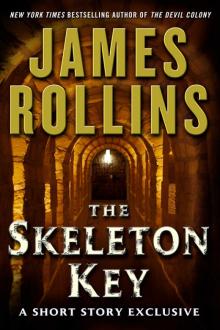 The Skeleton Key
The Skeleton Key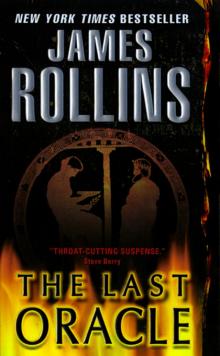 The Last Oracle
The Last Oracle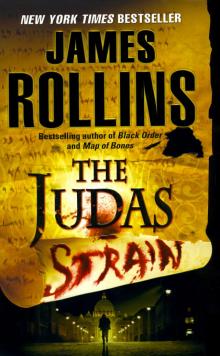 The Judas Strain
The Judas Strain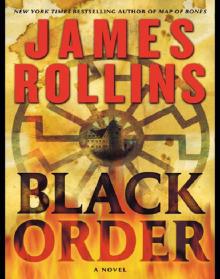 Black Order
Black Order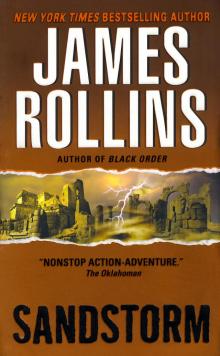 Sandstorm
Sandstorm Ghost Ship
Ghost Ship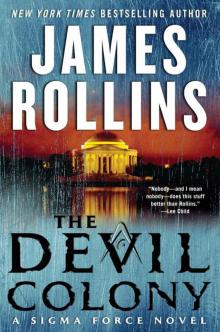 The Devil Colony
The Devil Colony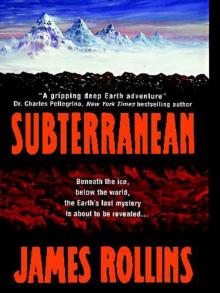 Subterranean
Subterranean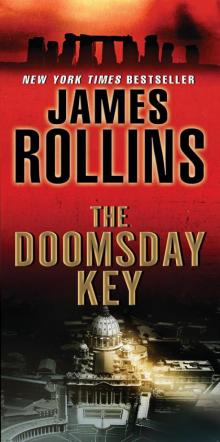 The Doomsday Key
The Doomsday Key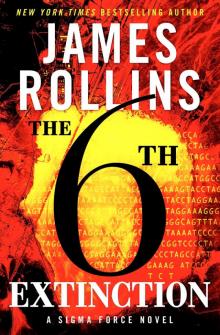 The 6th Extinction
The 6th Extinction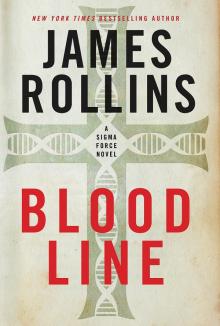 Bloodline
Bloodline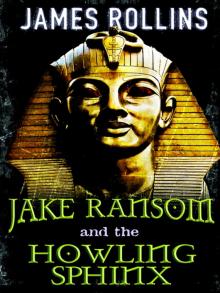 Jake Ransom and the Howling Sphinx
Jake Ransom and the Howling Sphinx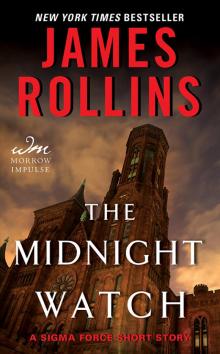 The Midnight Watch
The Midnight Watch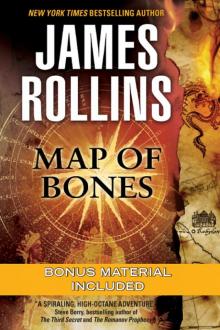 Map of Bones
Map of Bones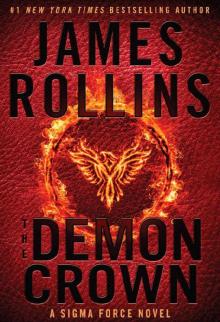 The Demon Crown
The Demon Crown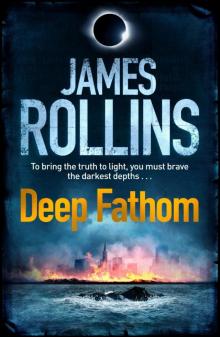 Deep Fathom
Deep Fathom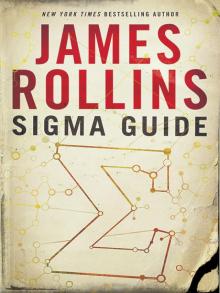 Sigma Guide
Sigma Guide Kowalski's in Love
Kowalski's in Love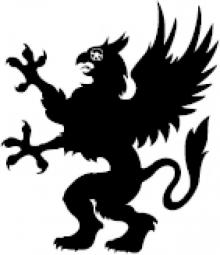 Jake Ransom and the Skull King's Shadow
Jake Ransom and the Skull King's Shadow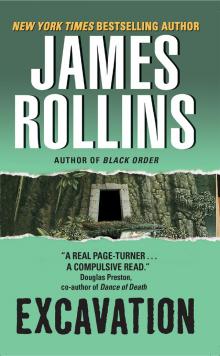 Excavation
Excavation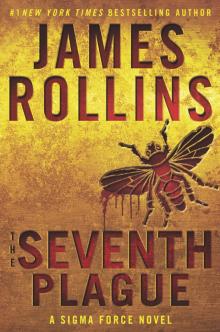 The Seventh Plague
The Seventh Plague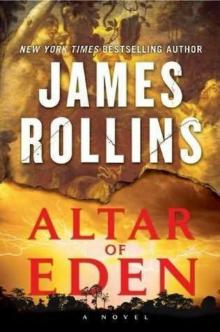 Altar of Eden
Altar of Eden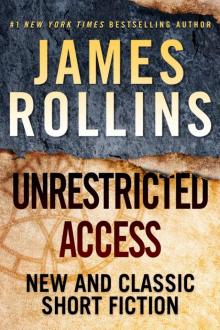 Unrestricted Access: New and Classic Short Fiction
Unrestricted Access: New and Classic Short Fiction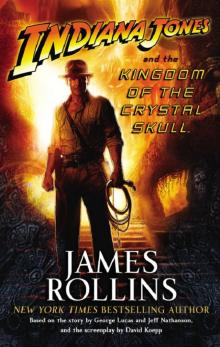 Indiana Jones and the Kingdom of the Crystal Skull
Indiana Jones and the Kingdom of the Crystal Skull Crucible
Crucible The Eye of God
The Eye of God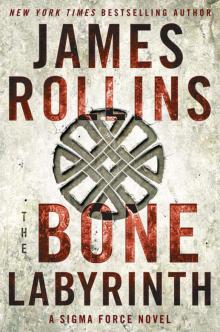 The Bone Labyrinth
The Bone Labyrinth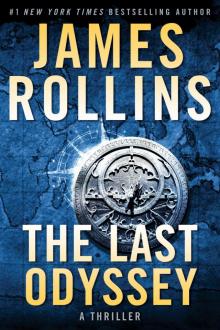 The Last Odyssey: A Thriller
The Last Odyssey: A Thriller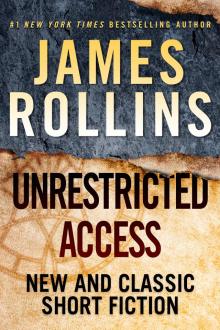 Unrestricted Access
Unrestricted Access Amazonia
Amazonia Blood Brothers: A Short Story Exclusive
Blood Brothers: A Short Story Exclusive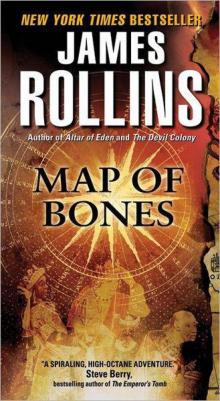 Map of Bones: A Sigma Force Novel
Map of Bones: A Sigma Force Novel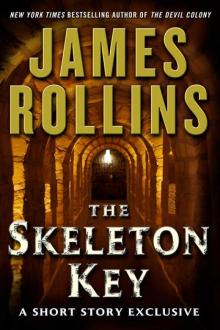 The Skeleton Key (sigma force)
The Skeleton Key (sigma force)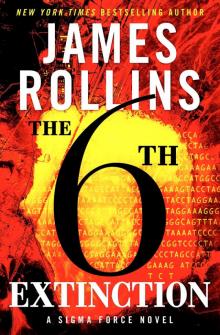 Sigma Force 10 - The Sixth Extinction
Sigma Force 10 - The Sixth Extinction Innocent Blood
Innocent Blood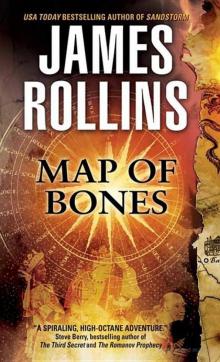 Map of Bones sf-2
Map of Bones sf-2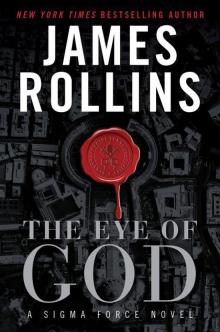 The Eye of God: A Sigma Force Novel
The Eye of God: A Sigma Force Novel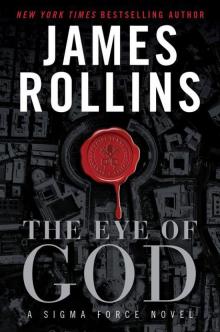 The Eye of God: A Sigma Force Novel sf-9
The Eye of God: A Sigma Force Novel sf-9 The Pit
The Pit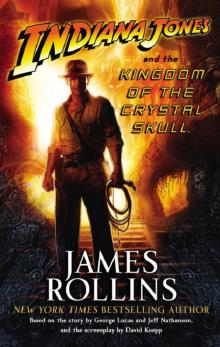 Indiana Jones and the The Kingdom Of The Crystal Skull
Indiana Jones and the The Kingdom Of The Crystal Skull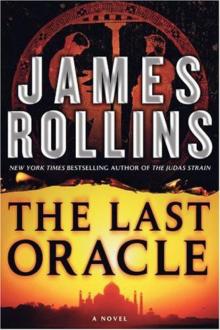 The Last Oracle (2008) sf-5
The Last Oracle (2008) sf-5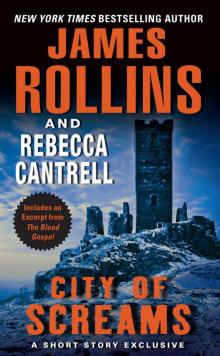 City of Screams
City of Screams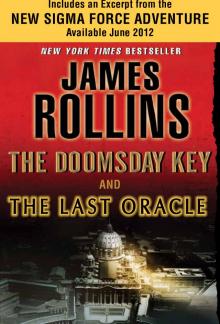 The Doomsday Key and The Last Oracle with Bonus Excerpts
The Doomsday Key and The Last Oracle with Bonus Excerpts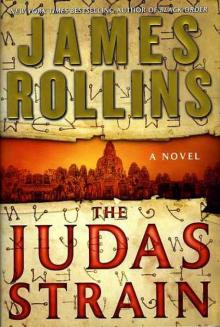 The Judas Strain sf-4
The Judas Strain sf-4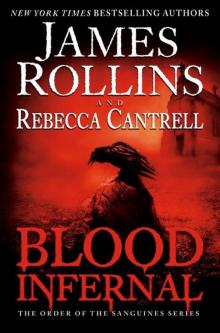 Blood Infernal
Blood Infernal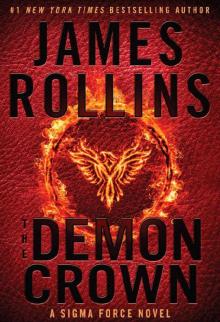 The Demon Crown: A Sigma Force Novel
The Demon Crown: A Sigma Force Novel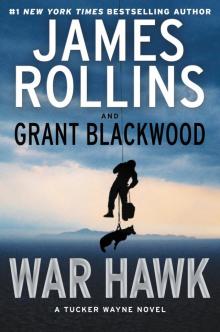 War Hawk: A Tucker Wayne Novel
War Hawk: A Tucker Wayne Novel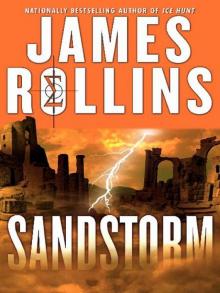 SANDSTORM sf-1
SANDSTORM sf-1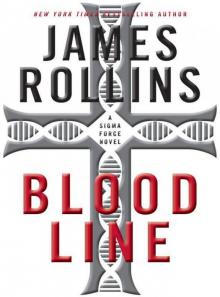 Bloodline: A Sigma Force Novel
Bloodline: A Sigma Force Novel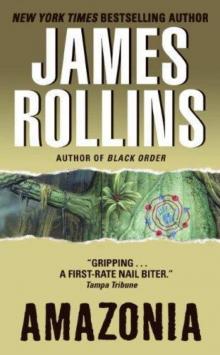 Amazonia: a novel
Amazonia: a novel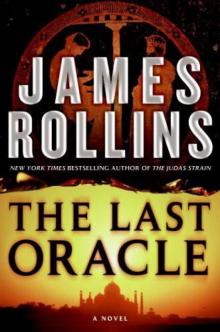 The Last Oracle: A Sigma Force Novel
The Last Oracle: A Sigma Force Novel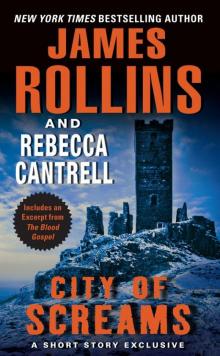 City of Screams (the order of the sanguines)
City of Screams (the order of the sanguines) Ghost Ship: A Sigma Force Short Story
Ghost Ship: A Sigma Force Short Story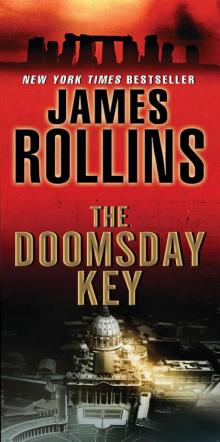 The Doomsday Key: A Sigma Force Novel
The Doomsday Key: A Sigma Force Novel